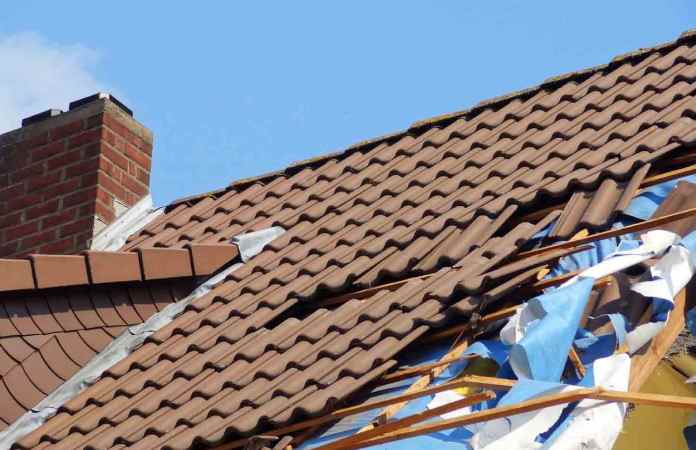Filing a hurricane claim after a storm can be an overwhelming process, especially when the insurance payout doesn’t match the extent of the damage. Many homeowners unknowingly face storm damage low offer from their insurance providers, who use various tactics to undervalue claims.
7 Red Flags That Your Storm Claim Is Being Lowballed
After a storm, your first instinct may be to rely on your insurance company to properly assess the damage and provide a fair payout. However, it’s not always as straightforward as it seems. Here are seven signs that your storm claim is being lowballed:
1. The Initial Offer Seems Too Low
One of the most obvious indicators that you might be receiving a storm damage low offer is when the initial settlement offer from your insurer is far below what you expected or what seems reasonable for the damage done. If the amount doesn’t cover the full scope of the damage, this could be a tactic to get you to accept a lower payout and avoid further negotiations.
2. Inadequate Damage Assessment
If the insurance adjuster fails to properly assess all aspects of the damage, such as roof, siding, or internal water damage, it’s a sign that they are undervaluing your claim. Insurers often minimize damage to reduce their payout, skipping over important repairs that could result in higher compensation.

3. Deductions for Unnecessary Items
Sometimes, insurers make insurance adjuster tactics by deducting amounts for repairs that aren’t necessary or simply ignoring costs that should be included in the claim, such as mold remediation or structural repairs. If you find deductions that seem unreasonable or unclear, it’s worth questioning the fairness of the claim.
4. Unclear or Vague Communication
If you’re experiencing a lack of transparency or clear communication from your insurance company, this could be an indication that they’re not being forthcoming with the details of your claim. Whether it’s a delay in response or refusal to provide specifics, it’s important to stay vigilant when your insurer avoids answering your questions about the claim.
5. Pressure to Settle Quickly
An insurer may try to rush you into accepting a low settlement by offering a quick payout. While it might be tempting to take the immediate offer, it could leave you with a payout that’s significantly lower than what you’re entitled to. Rushing the process benefits the insurance company more than it does the policyholder.
6. Ignoring Additional Costs
Insurers may ignore or undervalue additional costs, such as temporary housing, cleanup expenses, or personal property losses. These costs should be factored into your cyclone damage claim. If your adjuster overlooks these elements, it could lead to a significantly underpaid settlement.
7. Failure to Address Long-Term Damage
Sometimes, insurers will focus only on immediate repairs and ignore the long-term damage caused by a storm, such as weakened structures or hidden water damage. If the settlement doesn’t cover the full extent of the damage, especially for future repairs, your claim may have been undervalued.
What Can You Do If Your Claim Is Lowballed?
If you notice any of these red flags or believe your claim has been lowballed, there are several steps you can take to improve the chances of receiving a fair payout.
1. Request a Detailed Explanation
First, ask for a detailed explanation of how the settlement was calculated. This will allow you to see if there are any discrepancies or missing elements in the damage assessment.
2. Get a Second Opinion
Consider hiring a professional to inspect the damage independently. A public adjuster can provide an accurate assessment of the damage and present a better case for the true cost of repairs.
3. Consult a Public Adjuster for Storm Damage Claims
A public adjuster storm help can be invaluable in these situations. Public adjusters are experts in handling storm damage claims and work on behalf of the policyholder, not the insurance company. They can help:
- Evaluate the damage properly: A public adjuster will ensure that every aspect of the damage is accounted for and assessed fairly.
- Negotiate with the insurer: They can help challenge lowball offers and ensure that the insurance company is paying a fair amount for the damage.
- Provide proper documentation: Adjusters know exactly what documentation is needed and can help streamline the process to avoid unnecessary delays.
4. File an Appeal
If your claim has been lowballed, you have the right to file an appeal. Work with your public adjuster to submit additional evidence, challenge the undervaluation, and request a reconsideration of the settlement offer.
How to Protect Yourself from Lowball Offers in the Future
The best defense against lowball storm damage payout is to be proactive. Here are some tips for ensuring you’re prepared in case of future claims:
- Know Your Policy: Be sure you understand what is and isn’t covered under your insurance policy, including any exclusions or limits on storm damage coverage.
- Document Everything: Keep detailed records of your property, including photos of your home’s condition before the storm. This will help you provide concrete evidence if you ever need to file a claim.
- Hire a Professional Adjuster Early: Get a claims adjuster involved early in the process, so they can manage the entire claim and help you avoid undervaluation.
Protecting Your Rights and Ensuring a Fair Settlement
If you believe your hurricane claim Florida has been underpaid, it’s crucial to act quickly. Ignoring a storm damage underestimation or failing to question an underpayment can leave you with a settlement that doesn’t cover the full extent of the damage. A public adjuster storm help can significantly improve your chances of receiving the payout you deserve.
For more guidance on managing claims for storm destruction, visit Base Claims.

